Affiliate links on Android Authority may earn us a commission. Learn more.
Fitbit Versa vs Ionic: Which Fitbit smartwatch is still worth buying?
Published onFebruary 18, 2022
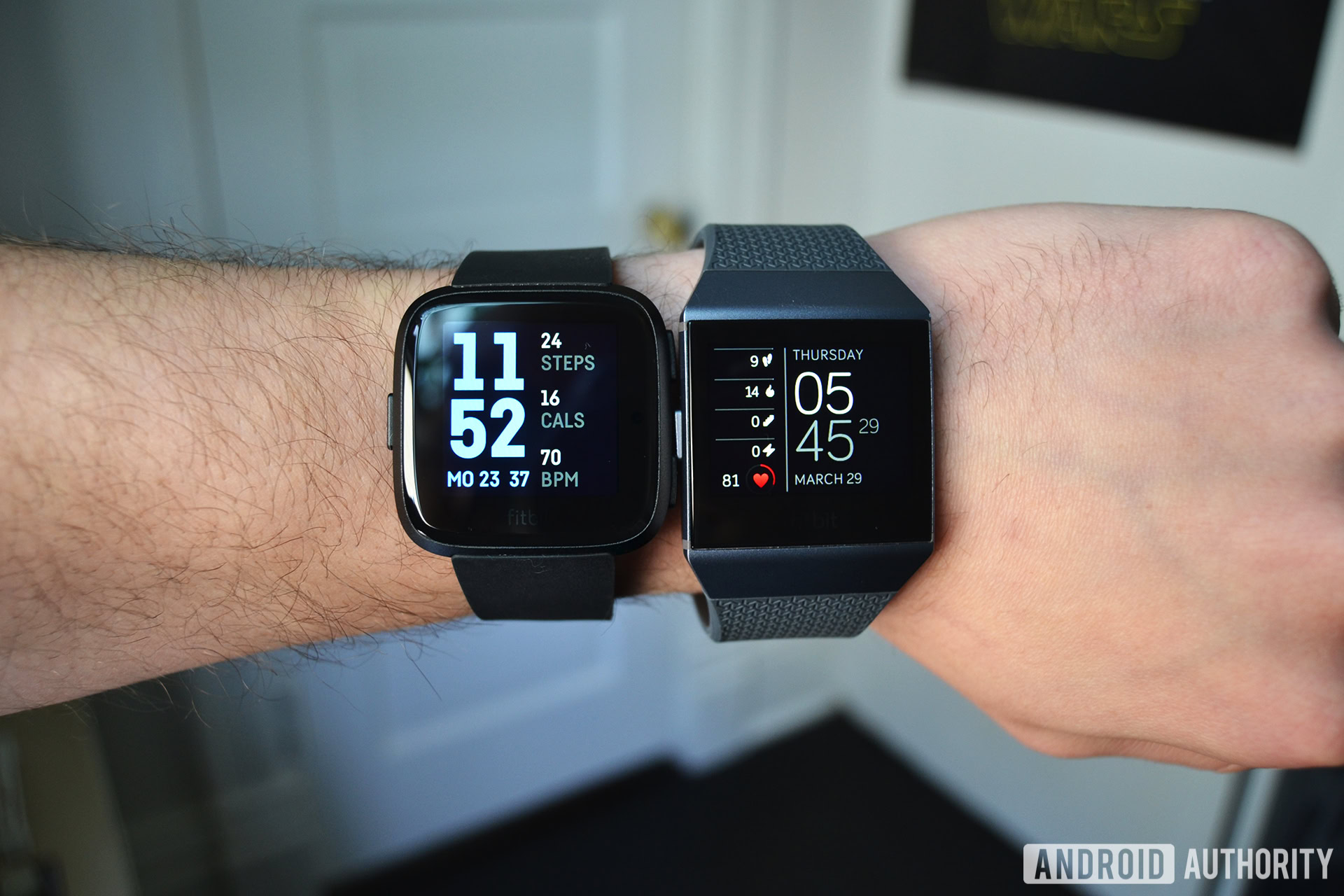
There are plenty of great smartwatches and fitness trackers out there with Fitbit in charge of several front-running picks. While the Sense stands out as one of the best fitness tracking smartwatches available, some users may be considering purchasing an older watch.
The Fitbit Ionic launched in 2019 as the company’s first real smartwatch. The original Versa followed soon after. But while these two watches were solid fitness trackers in their day, are they still worth buying? And if so, which should you pick? Today, putting these two Fitbit smartwatches head to head in our Fitbit Versa vs Ionic comparison.
Fitbit buyer’s guide: Everything you need to know
Fitbit Versa vs Ionic: The differences
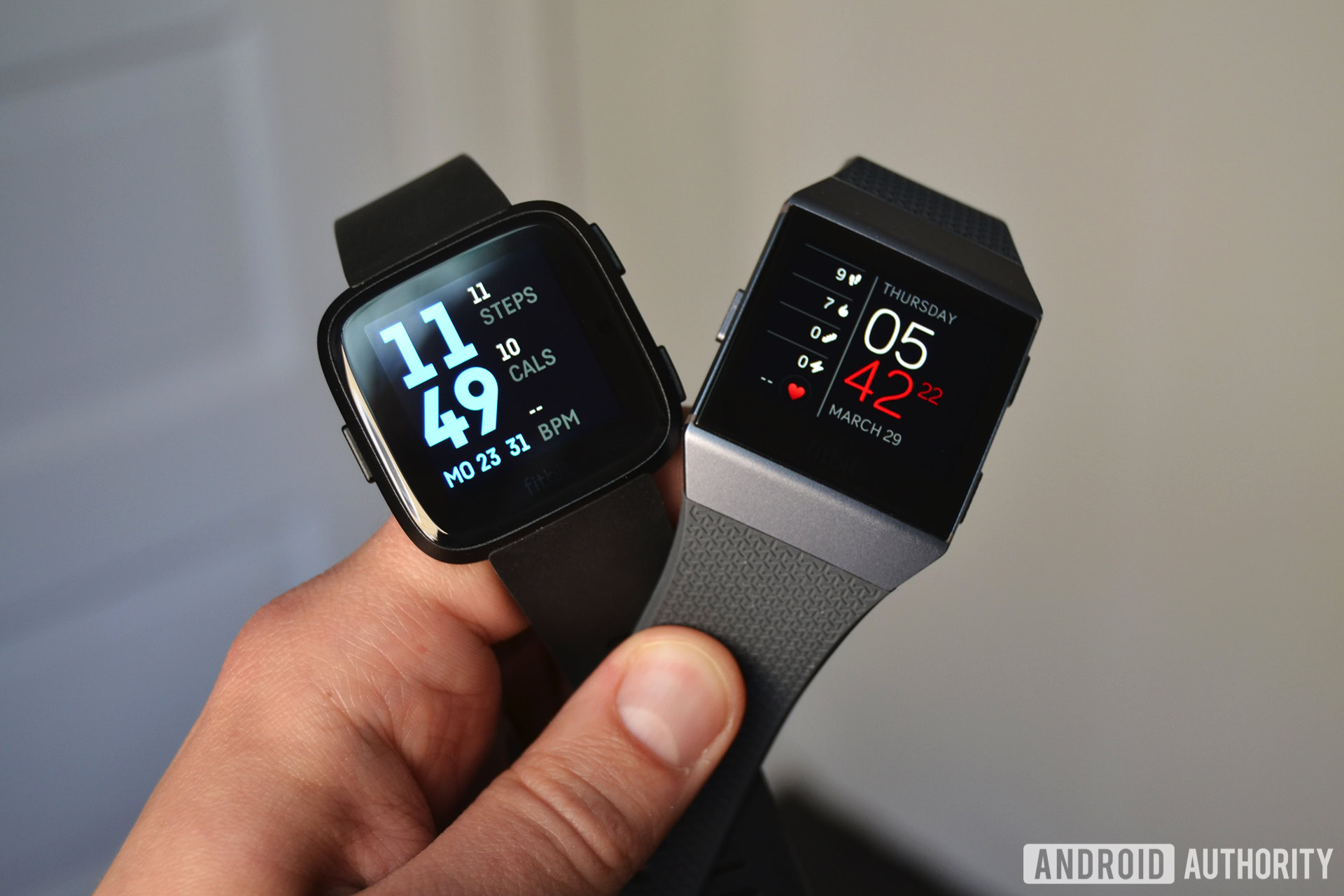
- The Fitbit Ionic packs a utilitarian design that not everyone will love.
- The Versa is a more inclusive smartwatch that draws design inspiration from the Apple Watch.
- On paper, the Ionic is the more complete smartwatch, packing NFC support and built-in GPS smarts.
The Fitbit Versa and Ionic are largely the same, though there are a few key differences you’ll want to know before making your decision. For starters, despite launching only months apart from one another, the Versa and Ionic do not look very much alike. The Ionic is boxy, angular, and in my opinion not super stylish. It looks like a small computer strapped to your wrist instead of trying to look like a normal watch.
The Versa has a much more approachable design. It’s thin — measuring just 11.2mm — and it’s smaller than the Ionic so it should fit more people’s wrists. I’m also a bigger fan of the squircle design of the Versa’s case, as opposed to the Ionic’s sharp angles. The Fitbit Versa 2 is even nicer looking.
Also read: Fitbit Versa review | Fitbit Ionic review
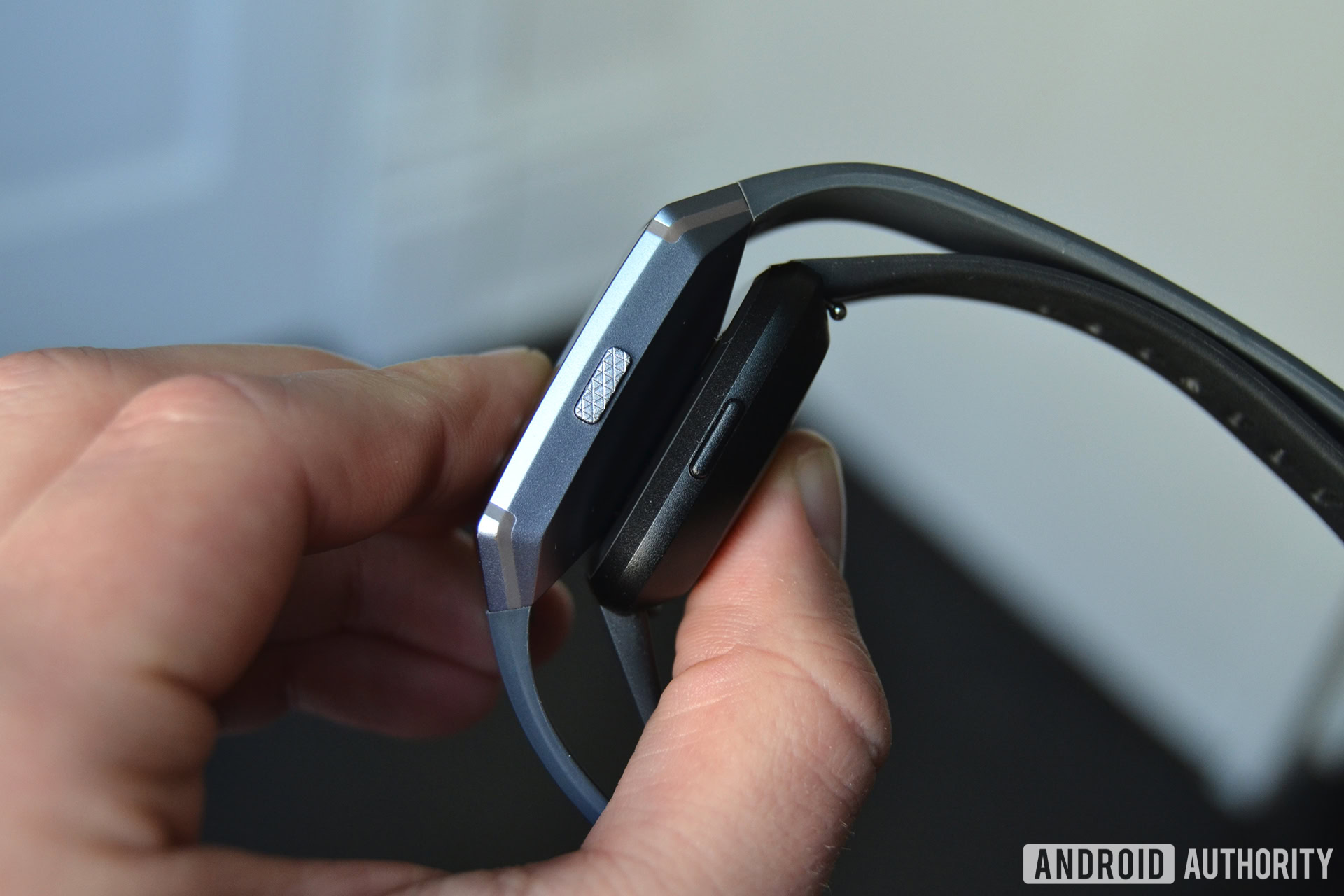
The Versa has a slightly larger display. It’s square, measuring 1.34 inches, and sports a 300 x 300 resolution. The Ionic’s rectangular display measures 1.42 inches and has a resolution of 348 x 250 pixels. Both displays use LCD panels and are covered in Gorilla Glass 3, and both have ambient light sensors that allow for automatic brightness adjustment. Newer Fitbit models use OLED screens that offer much better contrast ratios and brightness peaks.
Another main under-the-hood difference is NFC support. All Ionic models come with an NFC chip, which means they’re all compatible with Fitbit’s contactless payment system, Fitbit Pay. All Versa models also have support for Fitbit Pay, unless you live in the US. If so, you’ll need to spring for the pricier special edition model to get Fitbit Pay support. If you don’t want to jump through that hoop, the Fitbit Versa 2 has Fitbit Pay support built-in, as does the Fitbit Charge 4.
The last, and probably biggest deciding factor in this comparison is GPS connectivity. The Fitbit Ionic comes with built-in GPS, so it will be able to accurately track your distance metrics and pace while you’re out on a run. This makes the Ionic perfect for users who need the most accurate workout data possible. The Versa does not come with an onboard GPS, so your distance metrics from running will only be estimates and not super accurate. It can piggyback off your phone’s GPS when it’s nearby (via connected GPS), but you’ll need to take it with you on your run for it to stay connected.
More reading: The best Fitbit alternatives
Fitbit Versa vs Ionic: The similarities
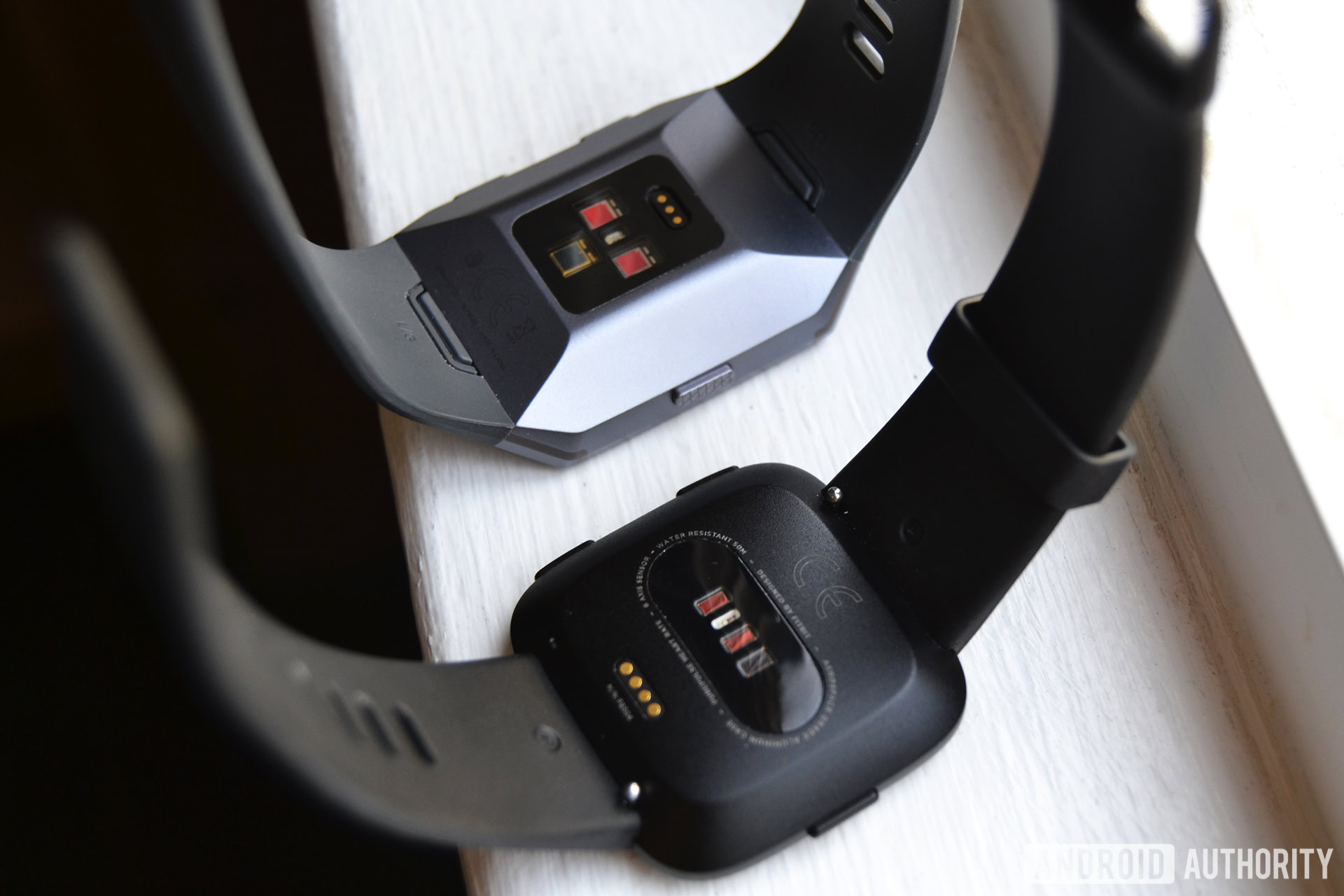
- The Fitbit Ionic and Versa offer similar fitness tracking features.
- Both trackers keep tabs on steps, heart rate, active minutes, sleep, and more.
- Built-in GPS support makes the Ionic a better bet for runners and cyclists.
Under the hood, the Versa and Ionic are more similar than they are different.
Both are capable of tracking all the same activity metrics, aside from pace and GPS tracking on the Versa. They’ll both track your steps taken, distance traveled, calories burned, active minutes, heart rate, and your sleep. They’re both very accurate when it comes to step, calorie, and active minutes tracking.
Each device can track a number of different sport profiles too, including running, biking, treadmill exercising, weight training, swimming, hiking, and more. Neither device is capable of rep counting in weight lifting mode as of this writing, but we’re hoping Fitbit implements that in the future.

The Fitbit Versa and Ionic both run the latest version of Fitbit OS. That means you’ll be able to receive smartphone notifications, store music, and utilize the handy new Fitbit Today feature on both watches.
Fitbit OS is a light operating system, allowing both the Versa and Ionic to last around four days on a single charge. If you’re coming from a Wear OS or Apple Watch, this should be great to hear.
For a better idea as to what these devices offer, check out the Fitbit Versa vs Ionic specs table below:
| Fitbit Versa | Fitbit Ionic | |
|---|---|---|
Display | Fitbit Versa 1.34-inch touchscreen LCD 300 x 300 resolution 316ppi 1:1 aspect ratio 1,000-nit maximum brightness Corning Gorilla Glass 3 | Fitbit Ionic 1.42-inch color LCD touchscreen 348 x 250 resolution 301ppi Corning Gorilla Glass 3 |
Battery | Fitbit Versa Smartwatch mode: 4+ days 145mAh Lithium-polymer battery | Fitbit Ionic Smartwatch mode: 4+ days GPS mode: 10 hours Lithium-polymer battery |
Memory | Fitbit Versa 4GB (2.5GB available for music storage) Saves seven days of motion data, daily totals for 30 days | Fitbit Ionic 2.5GB Saves seven days of motion data, daily totals for 30 days |
Materials | Fitbit Versa Case and buckle: aluminum Strap: flexible, durable material similar to that used in many sports watches | Fitbit Ionic Case and buckle: aluminum Strap: flexible, durable elastomer material similar to that used in many sports watches |
Sensors and components | Fitbit Versa 3-axis accelerometer 3-axis gyroscope Optical heart rate monitor Altimeter Ambient light sensor Vibration motor Wi-Fi antenna (802.11 b/g/n) Connected GPS NFC (special edition only in the U.S.) | Fitbit Ionic 3-axis accelerometer 3-axis gyroscope Optical heart rate monitor Altimeter Ambient light sensor Vibration motor Wi-Fi antenna (802.11 b/g/n) GPS NFC |
Water resistance | Fitbit Versa 5ATM | Fitbit Ionic 5ATM |
Notifications | Fitbit Versa Call, text, calendar, email, music control, and much more | Fitbit Ionic Call, text, calendar, email, music control, and much more |
Compatibility | Fitbit Versa Android, iOS, and Windows | Fitbit Ionic Android, iOS, and Windows |
Dimensions | Fitbit Versa Case: .94 x .94 inches Small: fits wrists 5.5 - 7.1 inches in circumference Large: fits wrists 7.1 - 8.7 inches in circumference | Fitbit Ionic Case: 1.15 x .83 inches Large band: fits wrists 6.7 - 8.1 inches in circumference Small band: fits wrists 5.5 - 6.7 inches in circumference |
Colors | Fitbit Versa Classic: black band with black aluminum case / peach band with rose gold aluminum case / gray band with silver aluminum case Special edition: charcoal woven band with graphite aluminum case / lavender woven band with rose gold aluminum case | Fitbit Ionic blue gray / silver gray, slate blue / burnt orange, charcoal / smoke gray |
Fitbit Versa vs Ionic: The verdict
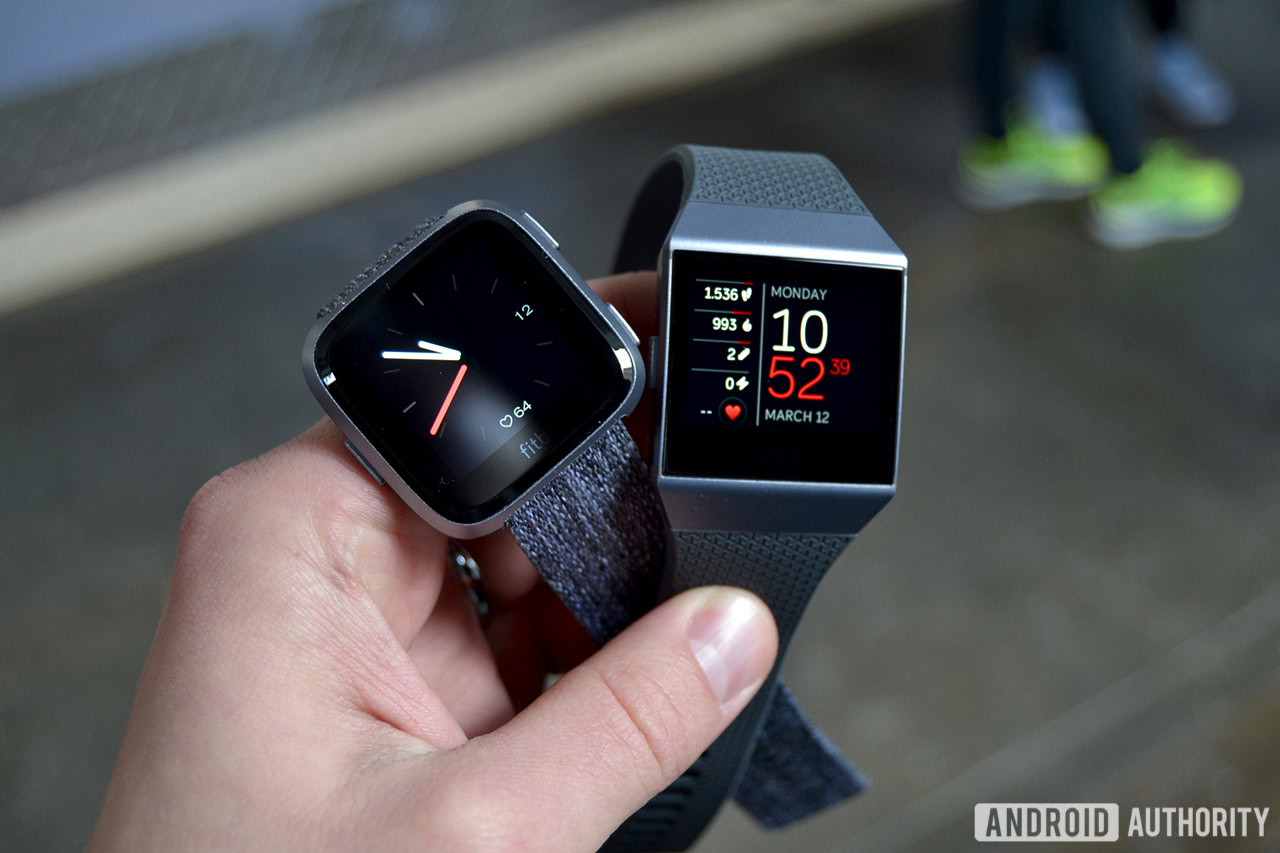
- The Fitbit Ionic is the better fitness watch, while the Versa is the more aesthetically pleasing option.
- Considering the age of both trackers, we can’t recommend getting the Fitbit Versa or Fitbit Ionic in 2022.
- Instead, there are plenty of newer Fitbits, like the Versa 2 and Charge 4, that are better bets.
Which is worth your hard-earned cash? Well, neither. Now that it’s 2022, we don’t really recommend you buy either of these devices. The Fitbit Versa 2 is a much better smartwatch than the original Versa and remains a solid, affordable investment. The Fitbit Ionic is grown long in the tooth. We’d recommend checking out another GPS watch instead of the Ionic or another Fitbit smartwatch with its feature set.
See also: The best Fitbit smartwatches
On that note, there are plenty of newer Fitbit devices worth your consideration. Find the full list, including links to our reviews, below.